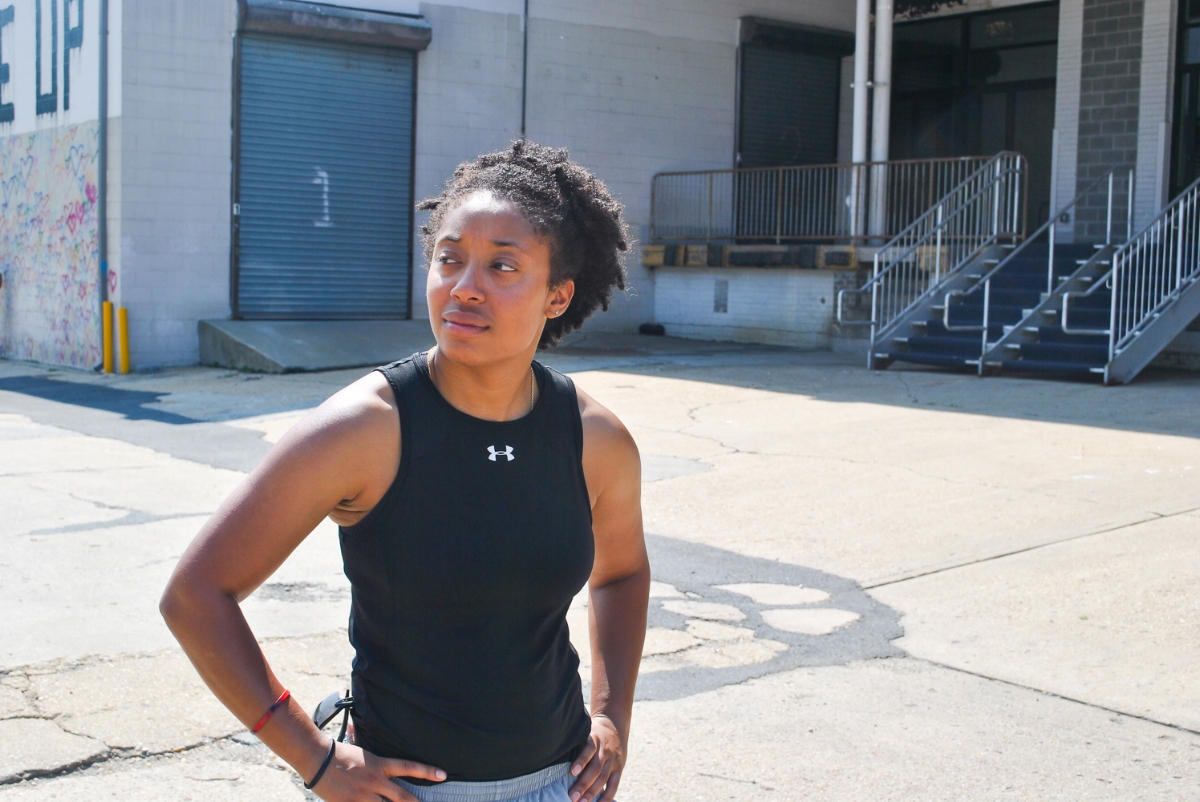Become a Better Runner by Competing with Yourself
Photo: Natalie Robinson for RUNGRL
By Courtney Littlejohn, Esq.
There are two kinds of runners: those whose struggles you see and those whose struggles you don’t.
Sometimes we may look at another runner and say to ourselves, “She’s so much faster than me” or “I never see her sweating!”.
Often, we get so caught up in comparing ourselves to the next woman, that we can talk ourselves out of a good run and ultimately the goals we were trying to meet. As women, society has conditioned us to compare ourselves to one another, but here’s the thing:
You don’t know her life!
You don’t know the next woman’s goals, her struggles or the things she had to do to get to where she is now. When you make these comparisons to women you see on TV or the internet, you’re actually comparing yourself to something for which you only have a snapshot.
So how do we change that?
My advice: change how you approach and go after your goals. Your goals should be based on YOUR past performance, taking into consideration factors that may have changed.
Don’t compare yourself with other people.
When you think about it, comparing yourself to someone who may have absolutely nothing in common with you (besides being a runner) sounds a bit ridiculous. You are the only one with your particular set of tools--your physical build, your lifestyle and schedule, your personal struggles. Others don’t have what you’re working with and that’s OK. It doesn’t make your goals any less attainable, it just means your path is going to look different.
Photo: Natalie Robinson for RUNGRL
Recognize that circumstances may have changed.
Whether it be an injury, differing time constraints, or a few extra pounds, life happens. When these things happen, recognize this, adjust your plan of attack and press on.
This doesn’t mean abandoning your original goal, just adjust how you go about meeting it. This might mean adding something different to your approach or adjusting your timeline.
In my case, when experiencing a training setback, I might give myself six weeks instead of my usual four weeks to reach a certain milestone. I might add more cross training this time around or really capitalize on my rest days. Whatever your adjustments look like, they should be based on your new situation.
Give yourself time to grow.
My greatest moments of growth have come after I’ve been the most uncomfortable. Embrace the discomfort, because it means you are growing. When I’m questioning my progress or getting discouraged, I ask myself a few questions:
“But, did you finish?”
“Did you give it all you had?”
“Did you stop less frequently than you did on your last run?”
“How do you feel in comparison to your last run?”
If I can answer these positively, then the number on my watch doesn’t matter. It’s a win for me.
Break a big goal into smaller pieces.
In law school, I had to read and digest an average of 200 pages per night. As you can imagine, it was daunting. An upperclassman once gave me the advice to “take it in small chunks.” I’ve since applied this advice to many things, including running.
Whether you are training for a marathon or you just want to get back to a prior pace and consistency after a running injury (both of which are my big goals at the moment), if you try to take on a big goal without appreciating the smaller steps it will take, you may find yourself overwhelmed.
To come back from my own injury (tendonitis), I had to get my lungs back, regain the strength in my legs and, most importantly, regain my confidence to run without fear.
Photo: Natalie Robinson for RUNGRL
On top of these setbacks, I’d planned for this to be my marathon year. Instead of continuing with the same plan, I had to ask myself how I could break the goal into smaller chunks. I chose to take a weekly approach. So, while I still have a 19-week training plan for my upcoming marathon, I choose to only focus on one week at a time and account for the fact that I have lingering injuries.
This approach allows me to listen to my body. It allows me to have mini victories and celebrations along the way, building my confidence and diminishing my fears.
This also requires plenty of self-reflection and even more honesty. The key is to remind yourself how far you’ve come in your running journey. I know that I’ve improved greatly since I first started running and that is what I hold on to when I'm not having the best run or when I start comparing myself to the next runner.
While it can be somewhat innate for women to use each other as a measure of where we want to be, consider that you may be the motivation for that woman to whom you are comparing yourself, or even for others you may have never realized. As you push forward to keep competing with yourself, you just might be someone else’s “goals” as well.
Courtney Littlejohn
Contributor
Courtney is an attorney, S.C. raised, D.C. made. She's about unapologetically being her authentic self--a lover of the law, running, and her faith.







